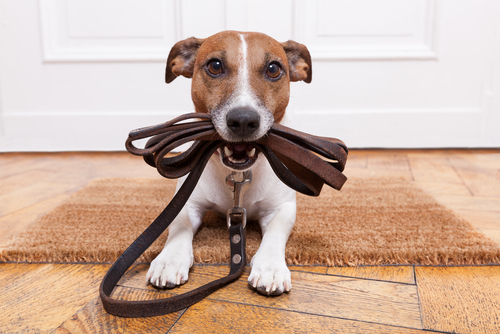Choosing the right DFW dog obedience school is not just about browsing online and reading reviews; it’s important to choose the dog trainer who uses methods that will work for your dog, especially when you’re choosing a dog trainer for a puppy.
When you’re speaking with a dog trainer or dog training company, it’s important to ask yourself the following questions:
- Is this obedience school using safe methods?
- Does this method work for my puppy?
- Will I be able to continue this method at home on my own?
- Will the obedience school’s methods help me bond with my dog?
If you can answer yes to each of these questions, you’re interacting with a trainer who may be right for you and your puppy!
What is The Best Dog Training Style?
There is plenty of heated debate over which type of dog training is best. Traditionalists will insist that you must declare yourself the alpha and dominate your dog into submitting to your will, while modern trainers avoid punishment and use positive rewards and redirection of behavior instead. A balanced trainer will draw from both disciplines, mixing and matching to achieve the right approach for your dog.
Is This Obedience School Using Safe Methods?
Any dog training method that relies on punishment carries a risk. Scientists have studied the way dogs learn, and they’ve found that using punishment while training a dog will increase the risk of fear and aggression in dogs.
Of course, not all dogs, or even most dogs, trained with traditional punishment methods will become anxious or aggressive, but it’s important to realize that the risk is there.
Positive training that uses rewards and redirection is completely safe for all puppies.
Does This Method Work For My Puppy?
Traditional, punishment-based methods are not appropriate for young puppies. These methods cause distress and fear in puppies and can even prevent learning. While a certain amount of tension can really help an older dog cement a concept, training for puppies should be positive and brief, with frequent short breaks. This method can be used on dogs as young as 8 weeks of age.
If your dog is a working dog, or a working gundog, and will be trained with traditional methods, you may choose positive training methods until your puppy is over 6 months of age. At this point, a puppy’s brain has developed more, so traditional methods will make more sense for your dog.
Will I Be Able To Continue This Method at Home On My Own?
The best dog trainers are training YOU to train your dog. While they may work with your dog independently at first, especially if there are negative habits you’re trying to correct, you should be joining your dog soon to learn how to maintain and continue training.
If your puppy will be a family dog, the whole family will learn to interact with your puppy correctly and help train. Consistency and kind treatment are key in raising your puppy to be a delightful companion.
Will This Obedience School’s Methods Help Me Bond With My Dog?
Dogs love attention, so any method that teaches you how to communicate with your puppy and reward their efforts will achieve this goal. The important thing to remember is that each type of training is only going to help you bond with your dog if they are true training experts. Dog training methods really only build positive bonds between dog and human when they are applied expertly and carefully taught to the owner.
Determining Which Kind of Trainer You’re Interviewing
The last thing you want is for your dog to be mistreated by a trainer. Such incidents can cause damage that is difficult, if not impossible, to completely reverse.
Here are some clues to help you figure out which kind of puppy trainer you’re talking to.
Traditional trainers may:
- Talk about the importance of your dog respecting you
- Discuss pack structure and the importance of you being dominant
- Ask you to bring a sliplead or prong collar to class
Modern trainers may:
- Talk about the importance of positive reinforcement
- Ask you to bring your puppy’s favorite treats to class
- Request that you bring your puppy to class wearing a harness as opposed to a collar
Take your time choosing the right dog obedience school for your puppy. Remember that it’s far easier to train a dog who hasn’t experienced prior improper training, but it’s not too late if your dog has had a bad experience in the past! The right school will be able to communicate and work with all kinds of canine temperaments, from puppies to senior dogs.
The important thing is to remain in a close, bonded relationship with your dog throughout your training together so that you have a foundation of love and trust on which to build. For information about our Dallas/Fort Worth obedience training courses, visit us at www.alldogsunleashed.com.



